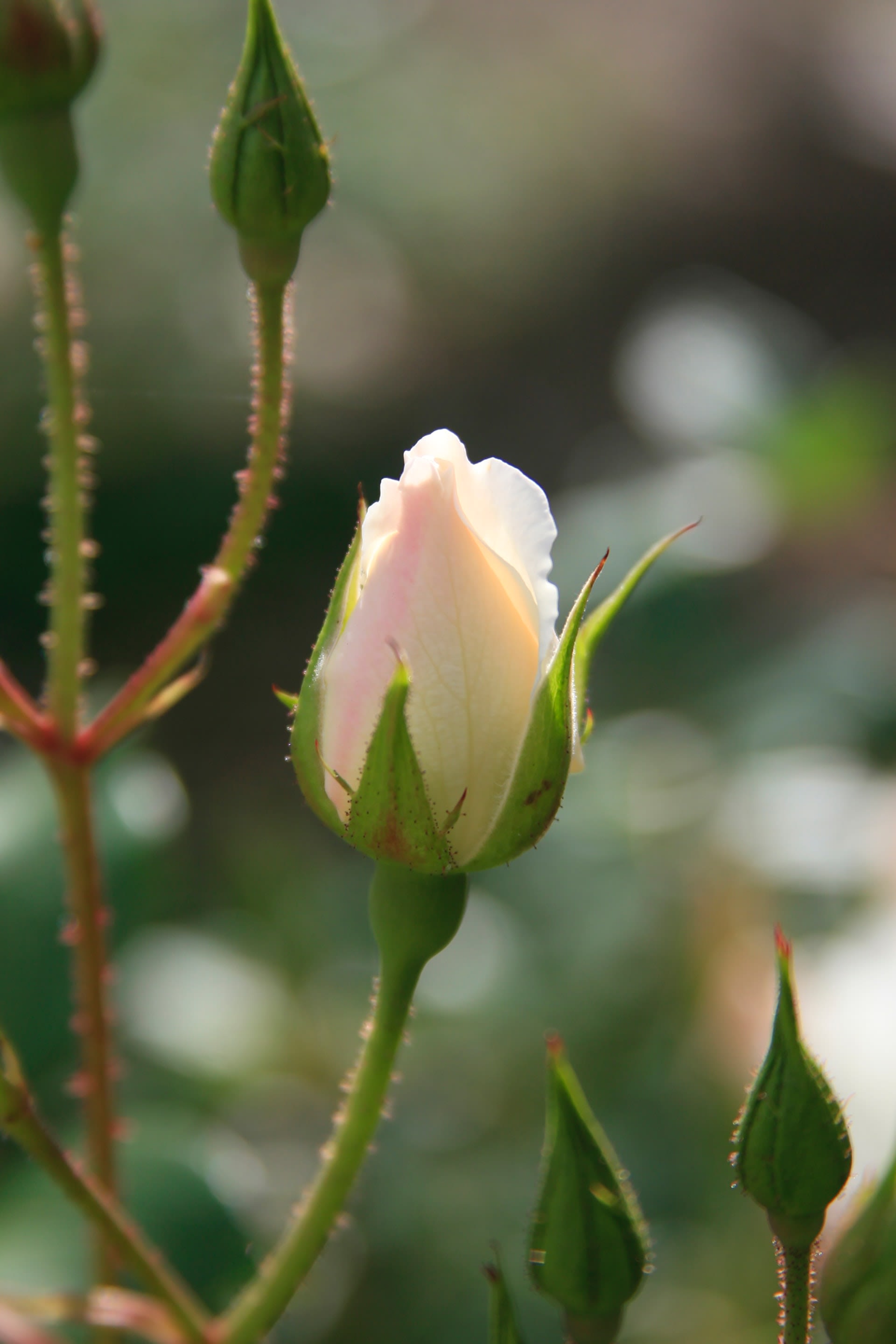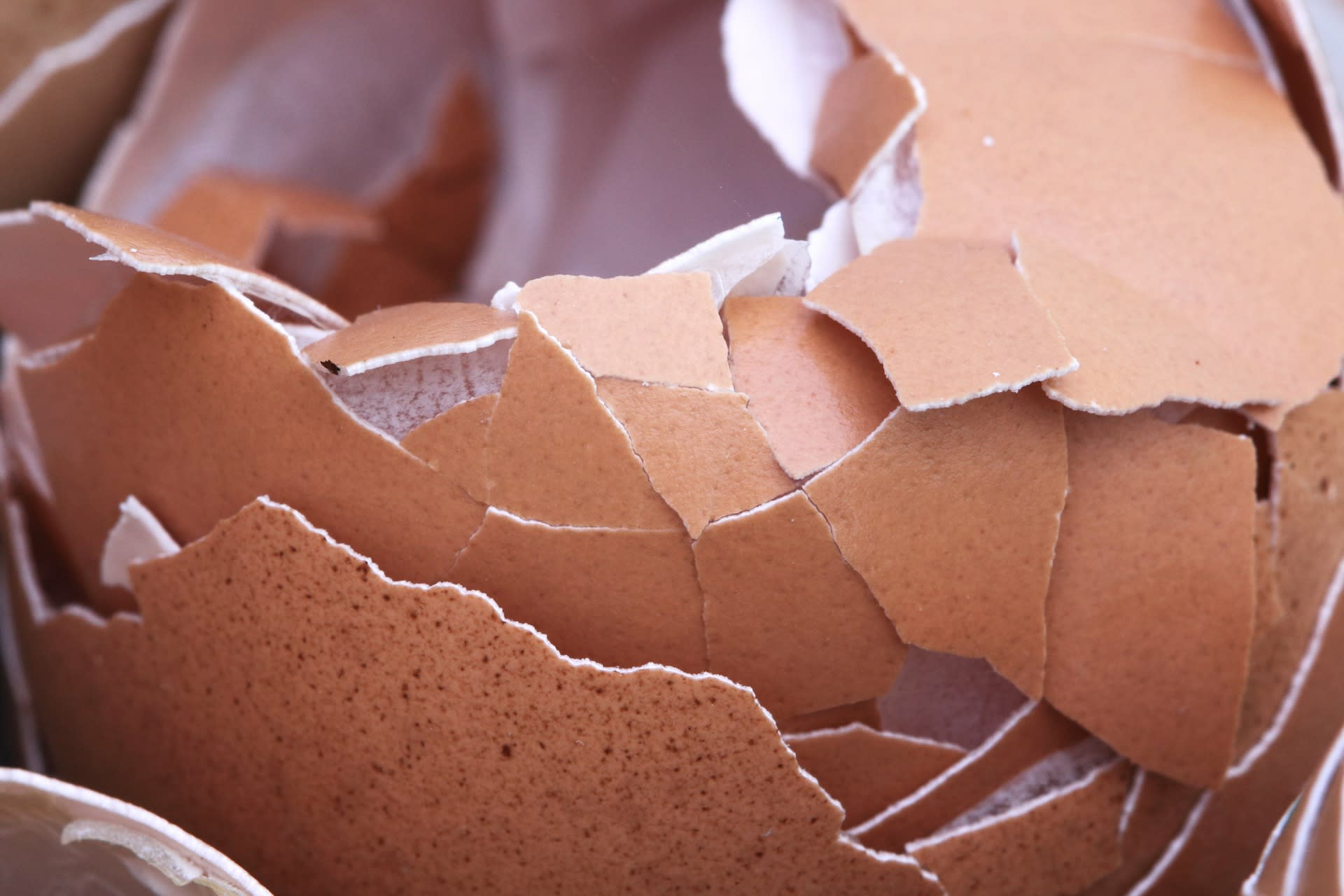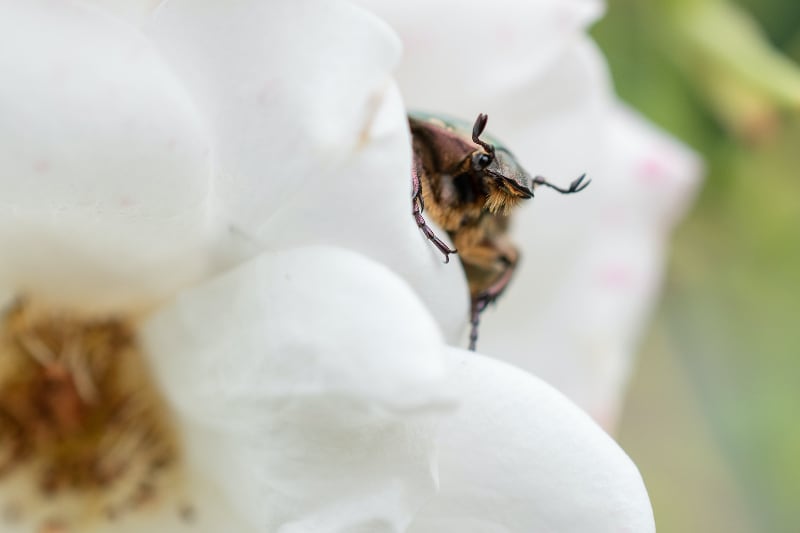Eggshells provide many nutrients for your soil and many other plants in your yard and garden. Instead of throwing the left-over eggshells in the trash, you can cheaply provide a nutrient your roses will be thanking you for.
Roses love calcium, and eggshells provide calcium to soil when broken down. Eggshells will not provide enough calcium for calcium deficient roses, but adding eggshells to the soil around your roses will keep them growing strong. You can put eggshells in with your roses before and after planting once a month.
As a family of soon to be six we are always looking for ways to stretch our money. Now eggshells might not be a permanent fix for calcium issues in your soil. However, putting eggshells in a compost or around plants can help continue to add nutrients to your dirt.
Top 3 Myths for Using Eggshells for Roses
1. Eggshells won’t provide enough calcium for calcium deficient roses
Have you ever wondered what necessary nutrients are needed for plant growth? According to Larry Oldham, PhD, Extension Professor of Plant and Soil Sciences:
Calcium, magnesium, and sulfur are three main essentials for a plant to be healthy.
This is why it’s believed that roses love eggshells.
Eggshells are thought to give a rich source of calcium to keep root systems healthy, along with green foliage.

But how do you truly know if your soil needs calcium and how much eggshells do you need to keep your roses growing strong?
This farmer from Fraser Valley Rose Farm sheds some light on the topic of adding eggshells to your plants in general.
He believes adding eggshells to plants is more of a placebo effect, than actually supplying an efficient amount of calcium for plants.
Here’s more in his video about finding out if there is enough calcium in your soil and figuring out if your plants need it.
Of course adding eggshells will not harm your soil or plants. But the real problem is thinking they are solving a calcium problem if you have one, and it just not doing enough.
2. Eggshells Won’t Deter Pests
Do eggshells deter slugs from the sharp edges of the broken shells?

Well as a newbie gardener and as I’ve researched reading very experienced gardeners advice, it seems as the slugs, beetles and other pests still gather around even if you have lots of broken eggshells around your plants.
Many gardeners read this myth, crush their eggshells to find slugs and pest crawling all over their garden and flowers.
It is believed that the shells will cut the insects, but no matter how big or small eggshells seem to do no harm.
3. Eggshells Keeps Diseases Away
The amount of nutrients your roses are getting from eggshells won’t provide enough nutrients to keep diseases at bay.

Roses need calcuim, but here are the other four main nutrients they need:
- Nitrogen
- Phosphorus
- Potassium
- Magnesium
Eggshells provide a small amount of phosphorus and potassium, but probably not enough to keep your roses growing and blooming the way you’d like.
So What Does Calcium Do for Roses Exactly?
Adding eggshells to roses is probably a common thing rose owners do. Eggshells are known for their calcium so that’s why so many of us, including me, toss them in with their plants.
Don’t get me wrong, it’s not a bad thing to do. So let’s understand what calcium does for roses.
First, the calcium provides structural support for the plant’s cell walls. This strengthens the plant to keep diseases away. For roses, a common disease is black spot.
But if your roses have a calcium deficiency you might notice the new flower bud stalks collapsing.
In this case it might be best to add a fertilizer instead of just adding eggshells.
Plants get the calcium they need from the soil. And sometimes we need to add extra nutrients because over time soil looses the good stuff that keeps our plants thriving.
When Do You Fertilize Roses?
For New Roses:
Adding fertilizer before planting will help your roses reach their full potential.
Once your hole is dug, add some bone meal or alfalfa meal and compost.
For Existing Roses:
Make sure you are far enough out in the spring to avoid frosts for your first dose of fertilizer.
Adding fertilizer three times a year will keep your roses happy.
If you are in a colder climate, it’s recommended to do the last feeding 6-8 weeks before the first frost in late summer/early fall.
What Fertilizer Do you Use for Roses?
- Dr. Earth Organic Rose and Flower fertilizer is great organic way to feed your roses. It contains no synthetic ingredients and is enriched with many organic natural nutrients.
You can also use this for all annual and perennial flowers, flowering trees, and shrubs.
Dr. Earth is known and loved by many gardeners.

2. Epsom Salt is good for roses. Epsom Salt is a natural compound of magnesium and sulphate. Applying epsom salt to existing roses helps them produce more canes and roses.

How to Use Epsom Salt on Roses:
Mix 1/2 cup of epsom salt to soil around the rose bush or dissolve in water and disperse the epsom salt water around the bush.
Best to not use on hot, humid days. Be careful not to touch the leaves with the mixture as it can scotch them.
How to Keep Pests Away From Roses?
- Neem Oil Spray: Neem oil spray keeps aphids, mealy bugs, cabbage worms, beetles, leafminers, ants and other insects away. It can also be used to treat fungal diseases.

Eggshells and Rose Conclusion
Adding eggshells around roses or to the compost for roses is not a replacement for rose fertilizer, but can be a great way to add nutrients to your soil over time. Eggshells are thought to keep pets away from plants and flowers, but neem oil is a better alternative to fight pests.

